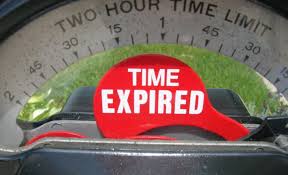
What is the Truth?
Is it true? Do 80% of all options REALLY expire worthless? Are 80% of all options buyers automatically losers which makes 80% of all options writers automatically winners in the options market without any risk?
According to The Chicago Board Options Exchange (CBOE) here are the facts:
- Approximately 10% of options are exercised (The trader takes advantage of their right to buy or sell the stock).
- Around 55%-60% of option positions are closed prior to expiration.
- Approximately 30%-35% of options expire worthless.
The CBOE goes on to point out that having an option expire worthless says nothing about the profitability of the strategy that it may have been part of:
- Multi-legged strategies can often require that one leg or more expire worthless although the strategy as a whole is profitable.
- Option positions closed prior to expiration may be profitable or unprofitable.
- Options that expire worthless may not be unprofitable if they were part of a strategy that involved other securities such as covered call writing.
Only About 30% of Options Expire Worthless?
What does it mean? ABSOLUTELY NOTHING! It doesn't mean that when you buy options, you automatically have 70% chance of winning, it also doesn't mean that if you write options, you only have 30% chance of winning.
Here are some of the arguments used by different options gurus in order to separate you from your hard earned money:
- BE THE HOUSE – Not the Gambler!
- Be the insurance company and win 90% of the time!
- Get stable and consistent monthly income!
- Get 90% winning ratio with our strategy!
Those arguments have no basis in reality. Insurance companies can lose significant amounts of money during periods of national disasters. Monthly income can become monthly loss during periods of high volatility. And so on..

If you are not a member yet, you can join our forum discussions for answers to all your options questions.
Advantages of Options Selling
- Opportunity for monthly cash flow with high annualized returns.
- Opportunity to buy stocks at lower prices via naked puts strategy.
- Over the long term, Implied Volatility tends to be higher than Historical Volatility.
- Downside protection for put sellers or covered calls sellers.
- Options sellers tend to have a higher win rate (but a lower rate of return).
- Covered call writers may also capture dividends.
- Opportunities to trade in self-directed IRA accounts, especially covered call writing.
Disadvantages of Options Selling
- Money can be lost is stock price dips below the breakeven.
- Profit potential is limited by the strike price.
- Assignment risk (may have to buy or sell shares).
- There is a learning curve and time commitment.
- In many cases, risk/reward is not favorable (you risk much more than you can gain).
- When using strategies like Iron Condors, one bad month can wipe out months of good gains.
Why it doesn't matter
Those who suggest that 80% of options expire worthless assume that if an option expires in the money, it automatically means a win for options buyers, which isn't true. If you buy a deep in the money option and the underlying stock moves against you, your options would still end up losing money even if it is still in the money by expiration! Ultimately, it is the direction of the underlying stock that determines if you end up profitable.
How about hedging? If you bought options as part of overall portfolio using strategy like Protective Put, and your options expired worthless, is it necessarily a bad thing? Not if you stock doubled in value while you held those protective puts.
And one final example: consider a strangle seller who sells options (both puts and calls) on high volatility stocks before earnings. He can gain $100 four times in a raw when the stock doesn't move in the money, but lose $1,000 during a cycle when the stock moved big time and one of the options became deep in the money. In this case, 9 out of 10 of the options expired worthless, but he still lost money.
Even if the "80% expire worthless" myth was true, it doesn't matter - if you gain little when options expire worthless but lose big when they go in the money, your bottom line is still negative. But the most important thing is that most options are not held till expiration.
Conclusion
Percentage of options expiring worthless is completely useless to options traders. This is NOT what should impact your decision to become an options buyer or options seller. The only way to determine which options strategy suits you is by really learning about them, their reward risk ratios, practicing them and understanding which approach best conforms to your investment objectives, trading style and risk appetite. Options is risky no matter if you are an options buyer or seller, don't let anyone tell you otherwise. There is no such thing as becoming "banker" in the options market. Understand the risks of options trading and you will be profitable.
Related Articles:
- Are Debit Spreads Better Than Credit Spreads?
- Selling Naked Put Options
- What Is The Best Options Strategy?
- The Road Not Taken
- Are You Ready For The Learning Curve?
- Can you double your account every six months?
If you are ready to start your journey AND make a long term commitment to be a student of the markets:






Create an account or sign in to comment
You need to be a member in order to leave a comment
Create an account
Sign up for a new account. It's easy and free!
Register a new account
Sign in
Already have an account? Sign in here.
Sign In Now